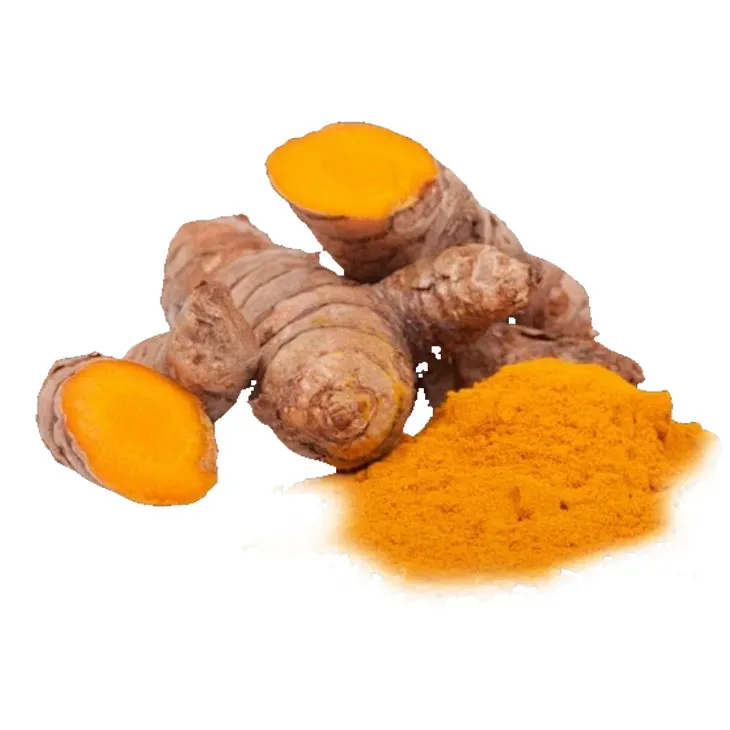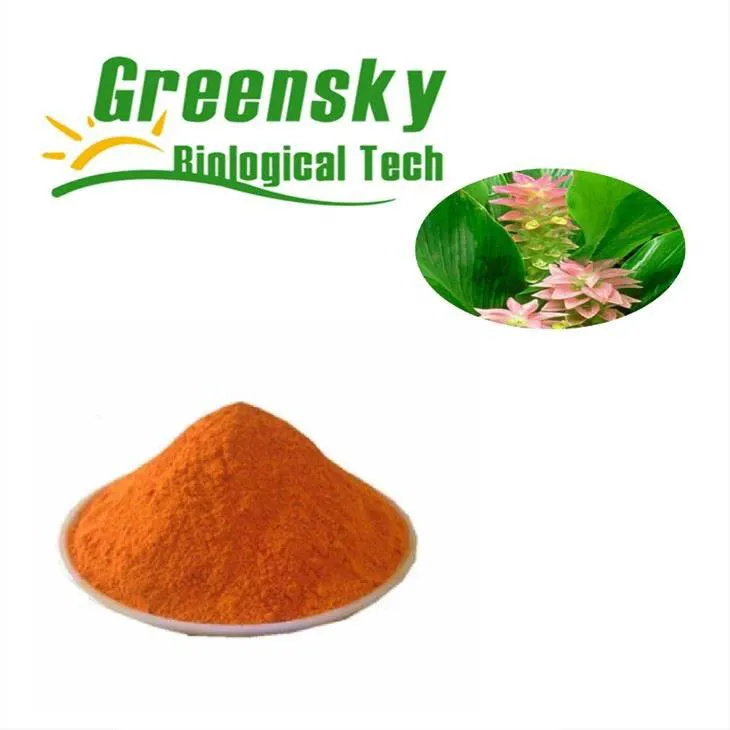- 0086-571-85302990
- sales@greenskybio.com
Benefits of Curcumin for Kidney Health: A Comprehensive Analysis
2025-04-01

Curcumin, the active compound found in turmeric, has been celebrated for its range of health benefits, particularly its strong anti-inflammatory and antioxidant properties. Traditionally used in Ayurvedic and Chinese medicine, Curcumin has attracted scientific interest over the years, leading to extensive studies investigating its therapeutic potential across various health domains. One area that warrants attention is its impact on kidney health. This article delves into Curcumin’s potential benefits for the kidneys, examining existing research and drawing conclusions to guide its use in renal health management.
The kidneys play a crucial role in filtering waste products, balancing bodily fluids, and regulating blood pressure, among other essential functions. Hence, maintaining kidney health is vital for overall well-being. Chronic kidney disease (CKD), characterized by a gradual loss of kidney function, has become a growing concern globally, necessitating effective prevention and management strategies. This is where curcumin’s therapeutic properties could hold promise.
Anti-Inflammatory and Antioxidant Properties
The primary appeal of curcumin in relation to kidney health stems from its anti-inflammatory and antioxidant capabilities. Inflammation and oxidative stress are key players in the progression of kidney disease. Curcumin’s potential to inhibit inflammatory pathways and neutralize free radicals may help protect kidney cells from damage. Studies have shown that curcumin can suppress the activity of nuclear factor-kappa B (NF-κB), a protein complex that plays a significant role in inflammatory responses. By mitigating inflammation, curcumin could reduce the strain on the kidneys and slow the progression of disease.
In terms of antioxidant activity, curcumin’s ability to scavenge reactive oxygen species (ROS) is beneficial. Overproduction of ROS can lead to oxidative stress, causing cellular damage in the kidneys. Curcumin’s antioxidative action adds a layer of protection to kidney tissues by reducing oxidative stress and minimizing cellular injury.

Modulation of Renal Fibrosis
Renal fibrosis, characterized by excessive deposition of extracellular matrix proteins, is a hallmark of chronic kidney disease and can ultimately lead to organ dysfunction. Emerging research suggests that curcumin can interrupt the fibrotic process. It modulates key molecular pathways involved in fibrosis, such as transforming growth factor-beta (TGF-β), which plays a critical role in the development of renal fibrosis. Curcumin’s inhibition of TGF-β signaling might prevent the excessive buildup of fibrotic tissue and maintain healthier kidney function.

Potential for Kidney Cancer Prevention
The incidence of renal cell carcinoma, a common type of kidney cancer, necessitates exploration of preventive strategies. Curcumin has demonstrated anti-cancer properties, including the ability to induce apoptosis (programmed cell death) and inhibit proliferation in cancer cells. While research is still in the early stages, preliminary findings suggest curcumin could potentially play a role in reducing the risk of renal cancer through its influence on cancerous cell pathways.
Diabetic Nephropathy Insights
Diabetic nephropathy, a severe complication of diabetes, is a leading cause of CKD. Curcumin’s ability to mitigate factors involved in diabetic nephropathy progression is promising. Research indicates curcumin can improve glycemic control and reduce high blood sugar levels, which are critical considerations in diabetes management. Furthermore, its anti-inflammatory action could counteract the inflammation-induced kidney damage seen in diabetic nephropathy.

Challenges in Bioavailability
Despite the wide array of benefits, one challenge with curcumin is its poor bioavailability due to rapid metabolism and elimination from the body. Efforts to enhance its absorption include formulating curcumin with other compounds, such as piperine found in black pepper, which can significantly boost its absorption. Nanotechnology-based delivery systems, such as curcumin-loaded nanoparticles, also offer promising improvements in bioavailability, ensuring that the beneficial effects of curcumin can be realized.

Clinical Evidence and Future Directions
The bulk of evidence supporting curcumin’s positive impact on kidney health is derived from preclinical studies involving animal models. While these provide valuable insights, clinical trials in humans are necessary to validate efficacy and safety. Current human studies are limited, but ongoing research holds promise. For patients with CKD or individuals at risk, consulting healthcare professionals before incorporating curcumin supplements is recommended. The potential for interactions with medications, especially those commonly prescribed for kidney-related issues, necessitates professional guidance.
As research continues, understanding optimal dosages and formulations will be key in unlocking curcumin’s full potential in kidney health. The integration of curcumin into standardized treatment protocols could offer a complementary approach to kidney disease management.

In conclusion,
curcumin exhibits promising properties that could support kidney health through its anti-inflammatory, antioxidant, and anti-fibrotic activities. While challenges in bioavailability persist, advances in delivery methods are paving the way for more effective application. As clinical evidence continues to emerge, curcumin might soon become a staple in the therapeutic arsenal for protecting and enhancing kidney function, offering hope to those affected by kidney disease and paving the way for novel preventative strategies.
- ▶ Hesperidin
- ▶ Citrus Bioflavonoids
- ▶ Plant Extract
- ▶ lycopene
- ▶ Diosmin
- ▶ Grape seed extract
- ▶ Sea buckthorn Juice Powder
- ▶ Fruit Juice Powder
- ▶ Hops Extract
- ▶ Artichoke Extract
- ▶ Mushroom extract
- ▶ Astaxanthin
- ▶ Green Tea Extract
- ▶ Curcumin
- ▶ Horse Chestnut Extract
- ▶ Other Product
- ▶ Boswellia Serrata Extract
- ▶ Resveratrol
- ▶ Marigold Extract
- ▶ Grape Leaf Extract
- ▶ New Product
- ▶ Aminolevulinic acid
- ▶ Cranberry Extract
- ▶ Red Yeast Rice
- ▶ Red Wine Extract
-
Mulberry leaf Extract
2025-04-01
-
Troxerutin
2025-04-01
-
Citrus Aurantii Extract
2025-04-01
-
Lavender Extract
2025-04-01
-
Centella Asiatica Extract
2025-04-01
-
Dan Shen Root Extract/Salvia Root Extract
2025-04-01
-
White Peony Extract
2025-04-01
-
Aminolevulinic acid
2025-04-01
-
Grapefruit Seed Extract Powder
2025-04-01
-
Ginger Extract
2025-04-01





















